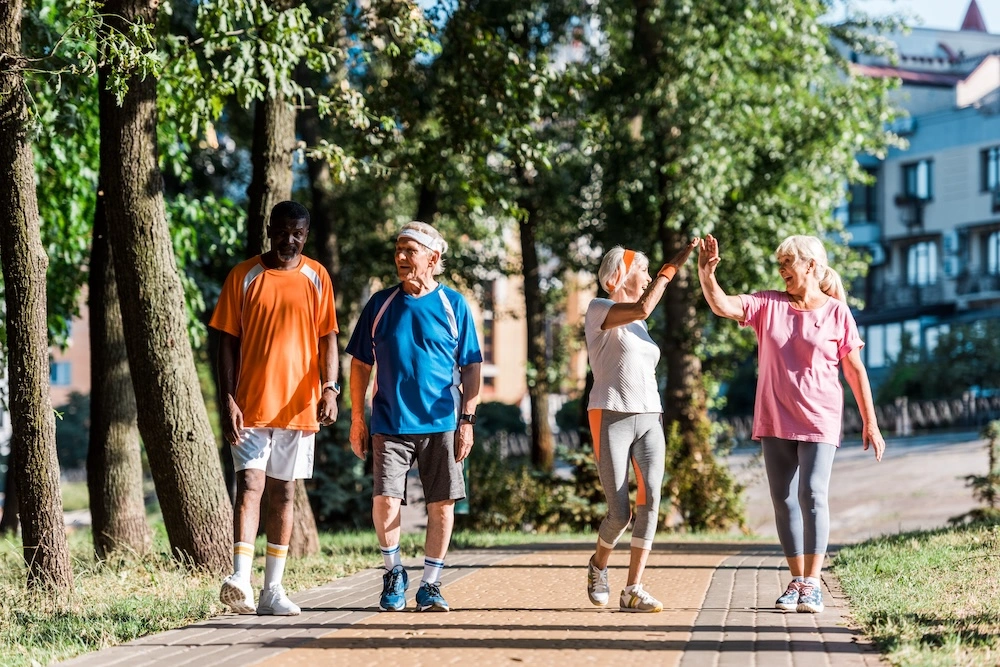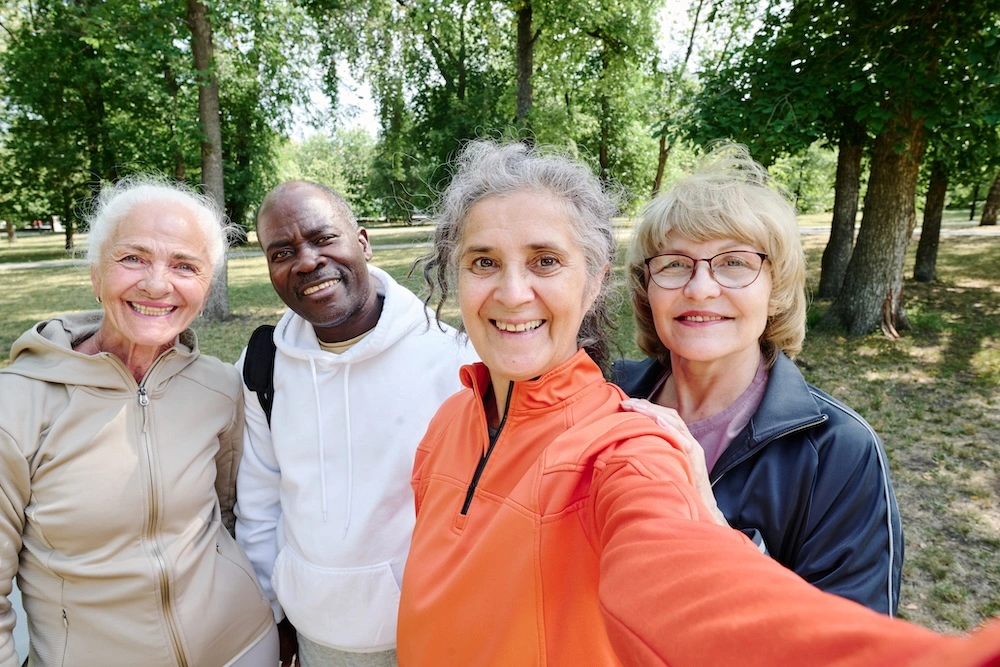Your heart is at the center of everything you do—keeping it strong and healthy is essential for living a long, vibrant life. Heart disease is one of the leading causes of death among seniors, but the good news is that small lifestyle changes can have a huge impact on improving heart health and reducing risks. From eating better to staying active and managing stress, here’s how you can protect your heart and enjoy a healthier future.
1. Eat a Heart-Healthy Diet 🥗

What you put on your plate directly affects your heart health. Focus on nutrient-dense foods that promote circulation and reduce cholesterol.
✅ Choose Healthy Fats – Opt for olive oil, avocados, nuts, and fatty fish instead of processed fats.
✅ Eat More Fiber – Whole grains, beans, and leafy greens help lower cholesterol.
✅ Reduce Salt Intake – Too much sodium can raise blood pressure. Use herbs and spices instead.
✅ Increase Fruits & Vegetables – Rich in vitamins, antioxidants, and essential nutrients.
✅ Limit Processed & Fried Foods – These contain unhealthy trans fats that harm your heart.
Heart-Healthy Superfoods: Salmon, almonds, oats, spinach, berries, beans, and dark chocolate (in moderation).
2. Stay Active Every Day 🚶♂️

Regular physical activity strengthens the heart and improves circulation. Aim for at least 150 minutes of moderate exercise per week.
Easy Ways to Get Moving:
✅ Walking – A 30-minute brisk walk daily is a great way to improve heart health.
✅ Swimming or Water Aerobics – Gentle on the joints and great for cardiovascular fitness.
✅ Strength Training – Helps maintain muscle mass and supports heart function.
✅ Stretching & Yoga – Reduces stress and improves circulation.
Start slow if needed—any movement is better than none!
3. Maintain a Healthy Weight ⚖️

Carrying excess weight puts strain on the heart and increases the risk of high blood pressure, diabetes, and heart disease.
✅ Watch Portion Sizes – Eating smaller portions helps with weight control.
✅ Drink Plenty of Water – Staying hydrated helps digestion and reduces overeating.
✅ Focus on Whole Foods – Processed foods often contain added sugars and unhealthy fats.
✅ Move More, Sit Less – Take breaks from sitting every 30 minutes.
4. Manage Stress & Mental Well-Being 🧘

Chronic stress can take a toll on your heart, raising blood pressure and inflammation. Try these relaxation techniques:
✅ Practice Deep Breathing – Inhale for 4 seconds, hold for 7, exhale for 8.
✅ Engage in Enjoyable Activities – Hobbies, music, and socializing reduce stress.
✅ Get Outside – Fresh air and sunshine boost mood and lower stress levels.
✅ Try Meditation or Mindfulness – Just a few minutes a day can help.
Your heart thrives when your mind is at peace.
5. Keep Blood Pressure & Cholesterol in Check 🩺

High blood pressure and cholesterol increase the risk of heart disease and stroke. Stay on top of your numbers with these tips:
✅ Get Regular Checkups – Monitor blood pressure and cholesterol levels.
✅ Limit Alcohol & Caffeine – Too much can raise blood pressure.
✅ Eat More Potassium – Found in bananas, spinach, and beans, it helps balance blood pressure.
✅ Take Medications as Prescribed – Follow your doctor’s advice for managing conditions.
6. Prioritize Quality Sleep 😴

Lack of sleep increases the risk of heart disease. Aim for 7-9 hours of quality sleep per night.
✅ Stick to a Routine – Go to bed and wake up at the same time daily.
✅ Create a Relaxing Sleep Environment – A cool, dark, and quiet room promotes better rest.
✅ Avoid Heavy Meals & Screens Before Bed – Both can disrupt sleep quality.
A well-rested heart is a healthy heart!
7. Quit Smoking & Limit Alcohol 🚭

Smoking is one of the biggest risk factors for heart disease, while excessive alcohol can raise blood pressure.
✅ Quit Smoking Completely – It’s never too late to stop. Seek support if needed.
✅ Limit Alcohol Intake – Stick to one drink per day for women, two for men.
✅ Replace Unhealthy Habits – Swap smoking with walking, chewing gum, or meditation.
Every day without smoking improves heart health!
8. Stay Socially Connected 👫

Loneliness and isolation can negatively impact heart health. Staying connected boosts emotional and physical well-being.
✅ Spend Time with Loved Ones – Social engagement lowers stress.
✅ Join a Group or Club – Being part of a community provides purpose.
✅ Volunteer or Help Others – Acts of kindness improve happiness and health.
✅ Stay Engaged in Activities You Enjoy – Doing what you love keeps the heart happy.
A strong heart thrives on connection and companionship.
Final Thoughts: Small Changes, Big Impact
A healthy heart starts with small, daily habits that make a big difference. By eating well, staying active, managing stress, and prioritizing sleep, you can reduce your risk of heart disease and enjoy a longer, more fulfilling life.
What’s Next?
✅ Choose one heart-healthy habit to start today!
✅ Schedule your next health checkup to monitor heart health.
✅ Share these tips with a loved one to encourage healthy living together!
Your heart works hard for you—take care of it, and it will take care of you! ❤️















